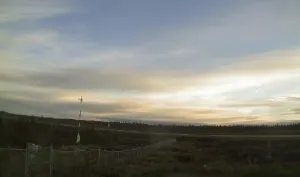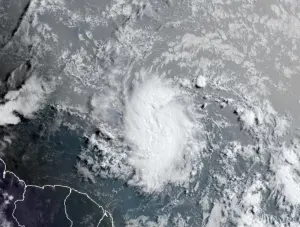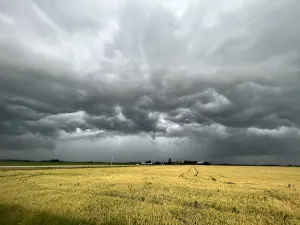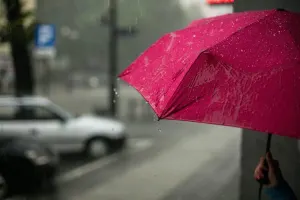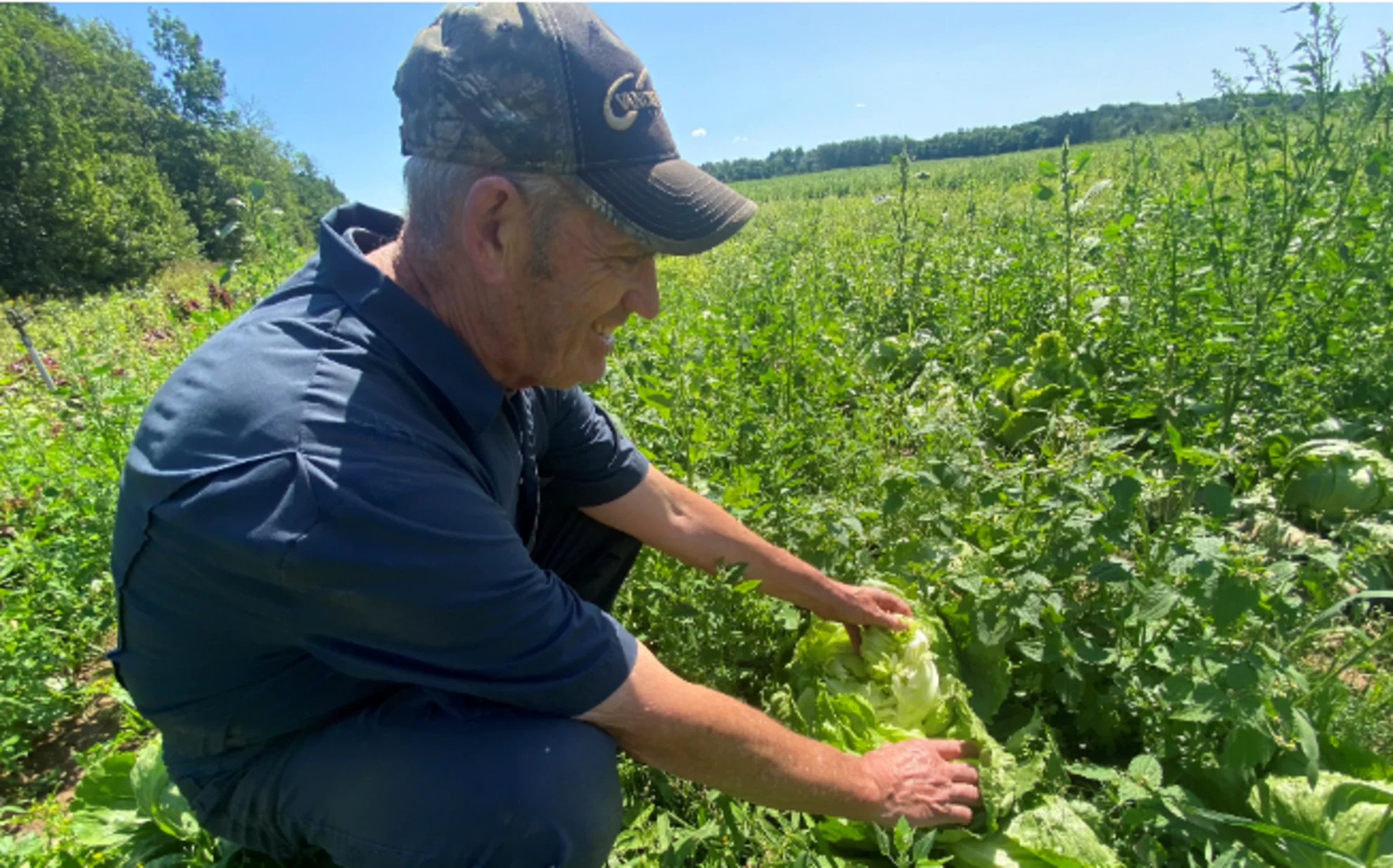
Nova Scotia farmers struggle against a year of extreme weather events
Farmers in Nova Scotia are struggling to maintain and harvest crops after back-to-back rain events across the province this summer
Andy Vermuelen farms lettuce in Nova Scotia's Annapolis Valley and says one bad week of rain turned into five bad weeks this summer. The end result was 30 percent of his lettuce crop being lost.
"When you get two or three inches of rain, you’re held up two to three days. If those come sequentially every two to three days as we did June and July, then the field is constantly being impacted," Vermuelen told The Weather Network.
RELATED: What is a flash flood? A civil engineer explains
Lettuce is a short season crop that needs to be grown both uniformly and consistently. What gets planted one week is ready to harvest in four to five weeks, with just one rain event creating problems with seeding and planting.

Andy Vermuelen inspects lettuce on his farm in Canning, N.S. (Nathan Coleman)
"Every year you count on having a week of weather where you really can’t get on the field and everything is packed up. In most years, it's a week. But in my 30-35 years of farming, this has been the first season that we've had that sort of continuous, week on week wet weather," said Vermuelen.
At Peter Elderkin’s orchard in Wolfville, the large amounts of rain washed pesticide and fungicide applications off his apple trees. He says most survived well, with some varieties now faring better than others.
It was the warm January followed by an extreme cold snap in February that damaged his cherry trees, and is consequently impacting his income.
"Very unusual to have plums and cherries wiped out. I’ve never seen those two crops wiped out," said Elderkin.
SEE ALSO: Farmers struggling with waterlogged crops after rainy start to summer
The UN International Fund for Agriculture Development's Jo Puri says, the climate and biodiversity crisis is affecting a third of all agricultural land.
"We were calling them black swan events, but they clearly are not anymore," Puri says.
Globally, small-scale farmers produce one-third of the world's food and are far more vulnerable to climate change. Puri says, efforts to reduce greenhouse gas emissions are important, but adaptation in agricultural practices are critical.
"We've got to start to adapt and try and see how we can really adapt our agricultural practices. Our infrastructure, our living styles to the change in climate and as a consequence, the change in weather," says Puri.
She says small investments in irrigation and crop diversification can make a big impact.







